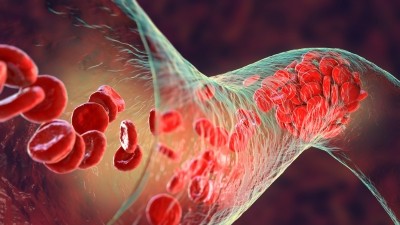LoQus23 Therapeutics raises £35m to advance therapy for Huntington’s disease

UK-based company LoQus23 Therapeutics has announced the closing of a £35 million series A round to advance its pipeline of small molecule drugs. The financing was led by Forbion and joined by existing investors Novartis Venture Fund (NVF) and SV Health Investors’ Dementia Discovery Fund (DDF).
LoQus23 focuses on developing small molecule drugs that are able to stop DNA instability and slow neurodegeneration in triplet repeat expansion diseases. These diseases, which englobe a wide range of disorders such as Huntington’s disease and myotonic dystrophy, are caused by a genetic defect that results in multiple repetitions of a short DNA sequence.
The company has developed a series of small molecule drugs that inhibit somatic expansion, a process that causes these DNA repeats to grow over a person’s lifetime. In the case of Huntington’s disease, the larger the number of these DNA repeats, the earlier the onset of the disease. By targeting somatic expansion, the goal of the company is to slow or even halt the onset and progression of Huntington’s disease.
“This financing will enable us to develop key clinical data to support the development of our exciting lead programme. The ever-increasing body of data pointing to somatic expansion, caused by aberrant DNA mismatch repair, as being the primary culprit in Huntington’s disease provides great support that our approach of developing oral small molecule therapies will be transformative for patients with this dreadful inherited disease,” said David Reynolds, Chief Executive Officer of LoQus23 Therapeutics.
The company’s technology platform targets MutSα and MutSβ, two proteins that are relevant in up to 30 triple repeat disorders, including Huntington’s disease. Both MutSα and MutSβ are involved in the process of DNA mismatch repair, which is responsible for correcting genetic errors generated during DNA replication. Generally, MutSα takes care of repairing small mismatches while MutSβ is responsible for larger ones.
LoQus23’s lead drug candidate is an allosteric small molecule inhibitor of MutSβ. The series A financing will support the preclinical development of the candidate and initial clinical studies, which are expected to start in 2026.
“In somatic expansion, MutSβ seems the most promising and best validated target, with the potential to bring disease progression to a halt. LoQus23 is leading the charge in developing allosteric small molecules against MutSβ, and we look forward to working with them to progress their molecules towards the clinic and ultimately to benefit patients,” said Rogier Rooswinkel, General Partner at Forbion and newly appointed Board Member of LoQus23.












